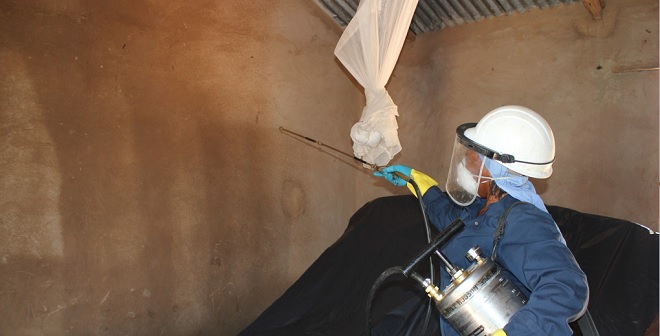
Kampala, Uganda | THE INDEPENDENT | The government requires about 235 billion shillings to roll out indoor residual spraying as a way of tackling the current upsurge of malaria across the country.
This is according to a new survey conducted by the Economic Policy Research Center (EPRC).
Sharing the results on Tuesday during a conference, EPRC research fellow Tonny Odokonyero who led the survey which started in May 2018 said that through analyzing how much was spent when the government piloted IRS in high prevalence districts of northern Uganda, they found that the method is the most effective in tackling the disease that is endemic in 95% of the country.
He said they also established that it’s more cost-effective to implement IRS using structures at the district level than using project structures. To arrive at this, they analysed data on activities sponsored by the American funded President’s Malaria’s Initiative and the activities that were conducted by the Malaria Control Programme at the Ministry of Health and found a huge difference in costs.
Odokonyero said that while under the projects, they were paying expatriates in thousands of dollars, districts were paying Village Health Teams 10, 000 to Shs15, 000 shillings per day of spraying.
However, the current upsurge is affecting 65 districts across the country and according to Dr Jimmy Opigo who heads the Malaria Control Programme at the Ministry of Health, a combination of approaches are being used to tackle the disease including a plan to supply more nets and embarking on IRS in selected high prevalence areas.
Opigo says most of their 120 million dollars budget for malaria goes to treatment that is buying drugs at 46% but now, researchers say if IRS is rolled out throughout the country a huge chunk of that money will be saved as many people will be protected from infection.
Currently, EPRC figures show up to eight working days are lost with only one episode of malaria infection.
*****
URN
 The Independent Uganda: You get the Truth we Pay the Price
The Independent Uganda: You get the Truth we Pay the Price


